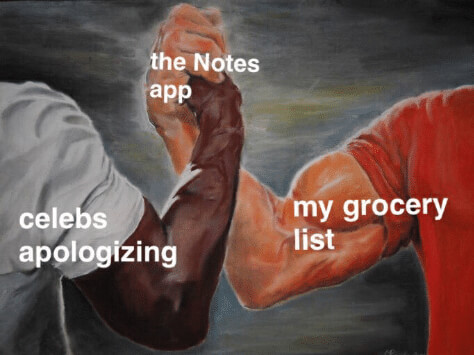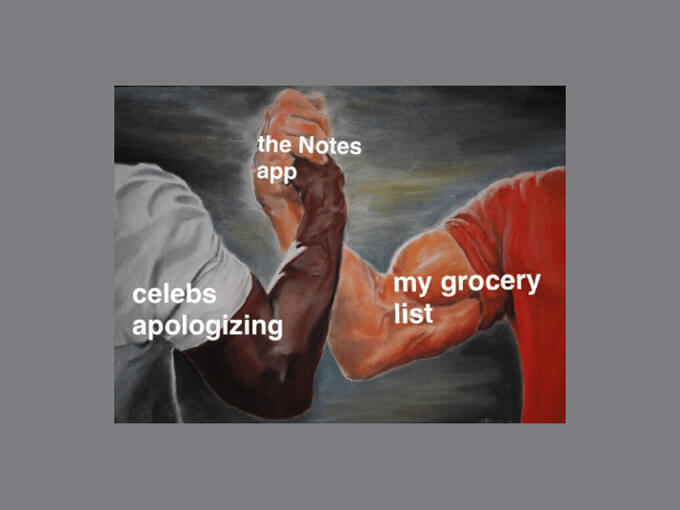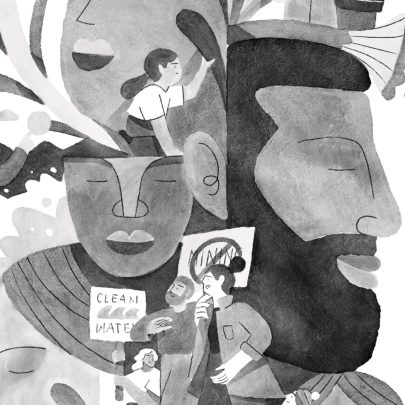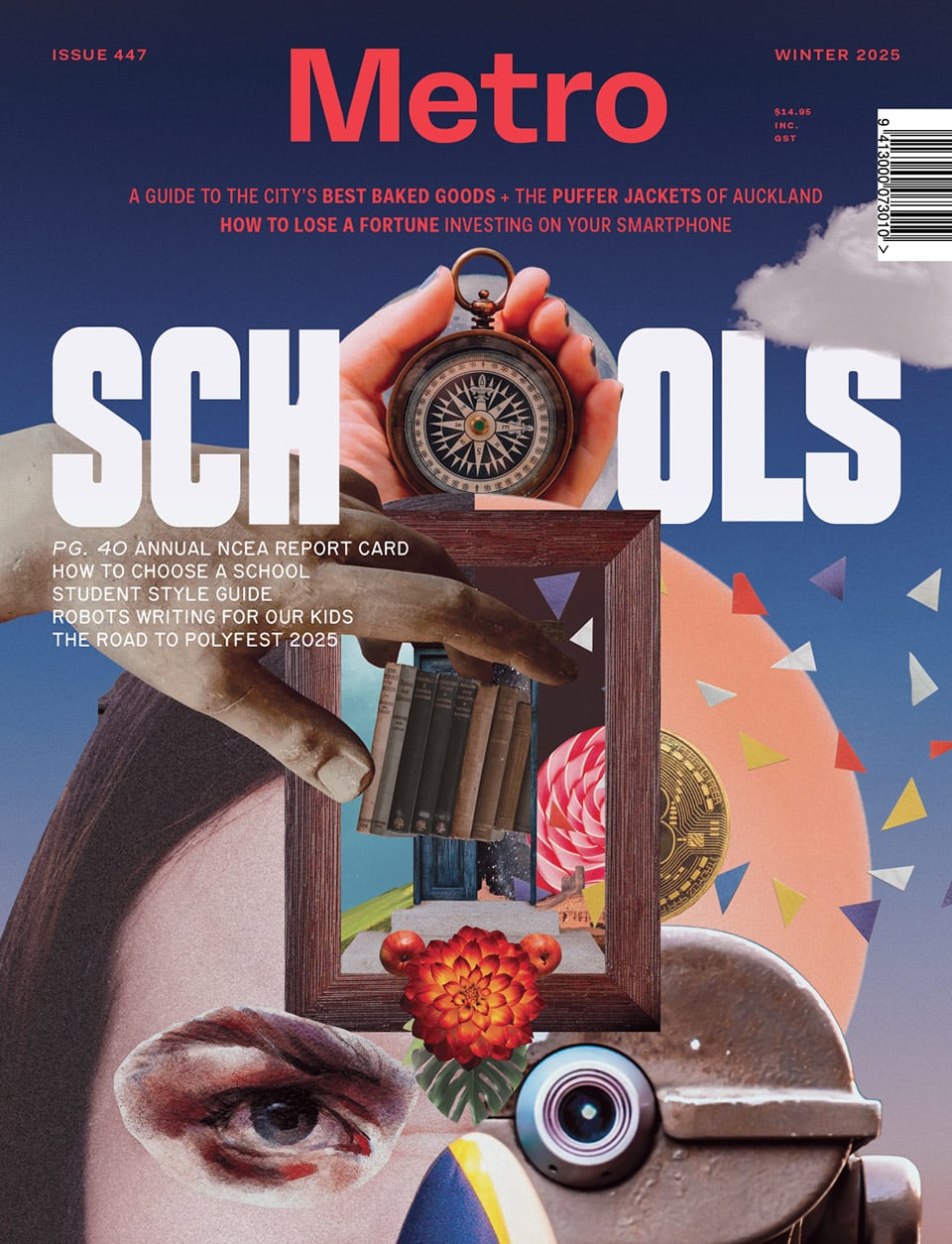Nov 5, 2019 Society
The lost art of the Facebook meltdown, and why a notes app screenshot just isn’t the same.
In 2004, aged 13, I joined Myspace (RIP), then moved through hi5 and Bebo before ditching them for Facebook after finishing high school. A decade later, teens are interpretive dancing to their cheating ex’s voicemails on TikTok, I’m a reluctant but compulsive Twitter user, and half my life is conducted via Instagram DMs.
There’s crossover, of course. We don’t tend to ditch one network entirely upon joining another. But the very dominance of these platforms means as they change, we quickly forget the way they used to function. Remember when everyone was flipping out thinking Facebook was publishing our old private messages? It wasn’t, but since the platform introduced comments on wall posts, we’d forgotten it was once the norm to write back and forth on each other’s pages in order to have a conversation. When a site changes, it erases the way we used to use it; like how you can walk past a house every day for years and then once it’s been demolished, barely remember what was there.
These days, Facebook is mainly a tool to remember birthdays and exchange dog videos with your dad. But that wasn’t always so. From roughly 2010 to 2014, if you had an axe to grind and a wifi connection, you were going to make a lengthy and ill-advised status update. For a long and wonderful moment in time, Facebook was the beating heart of online drama. Relationships were compromised, business relationships dissolved, and secrets were disclosed. Some truly thrilling posts had elements of all three.
The best Facebook meltdown I ever saw was a self-aggrandising mess from a serial entrepreneur in my broader social circle, posted in April 2014. He was leaving town having burned a number of bridges, but, to hear him tell it, this was all part of a pre-destined journey to global success. His post was a complete reconfiguration of history, including personal details about former business partners and ex-girlfriends.
This long-form dirty laundry went up at around 5am on a Thursday. I remember seeing it at work and the second I finished reading it, running to the bar managed by one of my best friends. By then, it had been deleted, due to pressure from the poster’s former business partners, but not before my friend had printed two hard copies – including the subsequent comments, it ran over 15 pages. She couldn’t stand to see it lost to the sands of time. We spent much of that afternoon poring over every detail and wondering what the fuck he was thinking.
“It was the biggest news of the time,” my friend says when I ask her what she remembers of that day. “We’d all heard stories about how loose this person was and just kind of accepted it, but when this came out it was like a wild solidification.”
While the status update didn’t stay up, I’d say it served its author’s purpose. We certainly all knew he was leaving town by the end of the day.

While asking around for the most dramatic examples people could remember, another friend recalled a particularly lurid post from the owner of a Wellington tattoo studio. “[He put up an] extremely long call-out post on the shop’s Facebook page because one of his friends had been sleeping with his wife or girlfriend. I recall it mainly for the nuclear option of posting it to a business page and the wall-of-text nature of it.”
Infidelity is not fun, obviously, but there’s something so chaotic and shocking about naming names like that. Not to mention that many of these status updates seemed to go up in the heat of the moment. Post in haste, repent at leisure.
Of course, it’s very likely the studio owner intended for the people he was writing about to see his post. He was sub-tweeting them with a megaphone – there was no way it could escape their notice. However, according to my sources, this is not the last word in passive aggression leaning heavily on the aggression. One friend recalled how at the height of the Facebook meltdown era, it was common to see people post lengthy rants about their relationship problems, and then tag their partner in the post.
Imagine it. Things have been tense, words have been exchanged. Now an uneasy silence hangs over the room. Maybe you go take a shower. You’re mad, but you’re trying to get past it. And then your phone lights up. You have been tagged in a post, the notification says, and when you click through, it’s from your beloved and it takes up your entire screen with a full catalogue of their perception of your misdeeds. What a move!
This is, clearly, not a sensible way to handle conflict, but it is undeniably bold and for that reason I can’t help but respect it. Many of us would rather die than let people know about our personal lives like that. We’re too vain. So there’s something so cavalier (if, again, inadvisable) about letting it all out so publically. The closest I’ve ever come is posting a single sad-face emoji to my status after a particularly rough day at the cafe I worked at in 2012. That’s not to say I’m never messy, or overwhelmed, or angry, I just prefer to work it out in person by talking loudly over my friends until the light leaves their eyes and I realise it’s well past time to change the subject.
Messiness is an inherent human quality. Facebook may be a ghost town these days, but we’re all still idiots. So where does drama make its home now?
I see the odd Instagram story that alludes to dark times in the poster’s personal life, and for a masterclass in pass-agg meme-sharing, one need look no further than Khloe Kardashian. That’s not to say it never happens: when people like Caroline Calloway and Azealia Banks flip out via Instagram, they’re met by a fascinated, if not necessarily adoring, audience. Many people venting online these days seem more inclined to do it from the relative privacy of a locked account with a small, carefully vetted audience.
The one exception is the mainstay of online oversharing in 2019: the iPhone notes app screenshot.
When Facebook meltdowns faded out, the notes app stepped into the breach. Who could forget the time Ariana Grande licked a donut? She apologised via an iPhone notes app screenshot which has now, four years on, been all but scrubbed from the internet. When Lena Dunham was a rape apologist; when Migos were homophobic; when Amy Schumer was racist: they all tried to get ahead of the scandal with a notes app apology. Perhaps most notoriously of all, when Taylor Swift wished “to be excluded from this narrative,” she let us all know with a note on an off-white faux-textured screenshot. These people are famous, but I’ve seen similar behaviour from people whose followings number in the hundreds.

Like the status update before them, notes app screenshots allow aggrieved individuals to let it all out without the tight character constraints of, say, a tweet. However, they’re not quite limitless. By my estimation, you can fit about 150-200 words in a single notes screenshot, and if you’re really keen, you might post a couple of them together. That’s still a long way short of the 1000-plus words we used to see on Facebook. It’s not the same, and with these posts, there’s a veneer of consideration that just isn’t as fun as the stream-of-consciousness nature of a classic rambling Facebook screed. You’re not just typing up a storm and hitting post – the very nature of drafting a note implies you’ve really thought about what you’re saying.
The lack of threaded comments is a downside, too. One of the true strengths of the Facebook meltdown was the way it encouraged a right of reply. If you felt maligned by a post concerning you or a loved one, you could get right in there, gloves off. While it’s possible to get ratioed when posting a notes app statement, the replies aren’t as easy to follow. It’s trickier to get the lay of the land, which, in terms of treating other people’s personal crises like entertainment, is crucial.
I’m a bit ambivalent about my love of these public own-goals. Yeah, people do it on purpose, but it tends to be in a time of stress. They’re possibly not operating entirely rationally. It feels a bit grubby to be so delighted by their lack of impulse control. On the other hand, as humans, we’ve been gossiping for as long as we’ve been talking. If you don’t want people speculating on your (often self-inflicted) misfortunes, there’s always the option of only discussing them in private.
When in doubt, log off.






